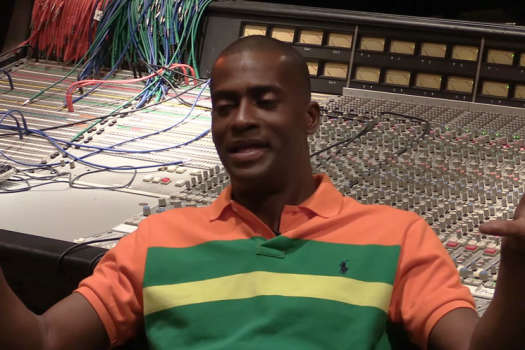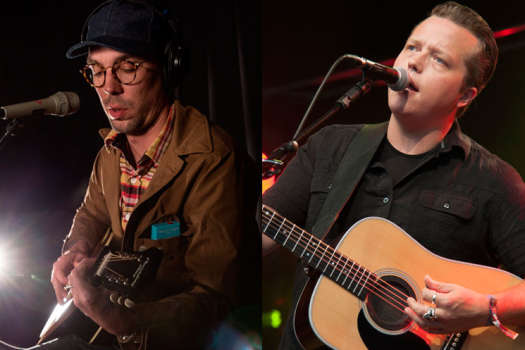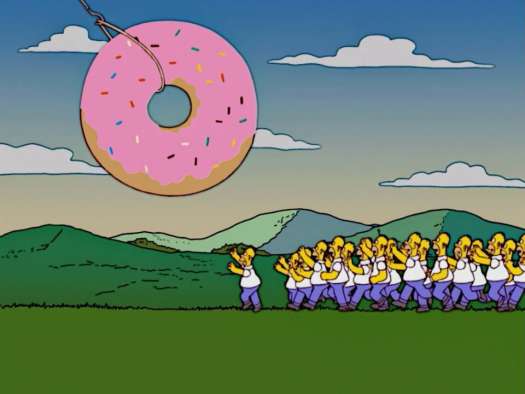One would think a film that chronicles a decade-long gay relationship would be cute and cozy, romanticizing the idea of protracted companionship, yet Ira Sachs's Keep the Lights On is a haunting tale that isn't so much about the ups and downs of a romance, but the analysis of deterioration between two people.
Erik (Thure Lindhardt), a sex-obsessed man that enjoys masturbating while talking to strangers on a phone sex hotline, first encounters Paul (Zachary Booth) in 1998 during what was intended to be an anonymous tryst. Paul claims to be with a girlfriend at the time yet a relationship between the two develops, eventually leading to the two men moving in together. The contrast between the men is evident: Erik is a fledgling documentary filmmaker trying to incorporate stability in his life, while Paul is a literary lawyer that goes off on crack binges to lose himself.
Continuing to follow the men over the years, we watch as they navigate intimacy and coldness, never maintaining an organic narrative, but dropping in on isolated moments of their relationship. It's no coincidence that these moments play like flashbacks, seeing as this is a semi-autobiographical tale of Sachs and his stormy relationship with literary agent Bill Clegg (author of Portrait of an Addict as a Young Man).
As the tale unfolds, you begin to feel as though you're viewing something that wasn't intended for you to see. Sachs frequently shoots from awkward angles or close-up on the actors to hone in on the smallest of details, while the sex scenes are a mixed bag of tenderness, clumsiness and sheer lust, which brings an air of authenticity to a gay relationship that has long been absent in mainstream cinema. The entire film is shot with a deliberately grainy aesthetic and thoughtful, inexact composition, as though appearing as if we're viewing the actual memories in Sachs's mind.
Keep the Lights On is a story of a relationship that brings out the best and the worst in two people, which is something any adult can relate to. This is a confessional platform for Sachs and it's a marvel that he was willing to share such a deeply personal story with the world, making this a liberating experience for not only him, but the many viewers that can relate to issues of co-dependence and fear of abandonment.
(Music Box)Erik (Thure Lindhardt), a sex-obsessed man that enjoys masturbating while talking to strangers on a phone sex hotline, first encounters Paul (Zachary Booth) in 1998 during what was intended to be an anonymous tryst. Paul claims to be with a girlfriend at the time yet a relationship between the two develops, eventually leading to the two men moving in together. The contrast between the men is evident: Erik is a fledgling documentary filmmaker trying to incorporate stability in his life, while Paul is a literary lawyer that goes off on crack binges to lose himself.
Continuing to follow the men over the years, we watch as they navigate intimacy and coldness, never maintaining an organic narrative, but dropping in on isolated moments of their relationship. It's no coincidence that these moments play like flashbacks, seeing as this is a semi-autobiographical tale of Sachs and his stormy relationship with literary agent Bill Clegg (author of Portrait of an Addict as a Young Man).
As the tale unfolds, you begin to feel as though you're viewing something that wasn't intended for you to see. Sachs frequently shoots from awkward angles or close-up on the actors to hone in on the smallest of details, while the sex scenes are a mixed bag of tenderness, clumsiness and sheer lust, which brings an air of authenticity to a gay relationship that has long been absent in mainstream cinema. The entire film is shot with a deliberately grainy aesthetic and thoughtful, inexact composition, as though appearing as if we're viewing the actual memories in Sachs's mind.
Keep the Lights On is a story of a relationship that brings out the best and the worst in two people, which is something any adult can relate to. This is a confessional platform for Sachs and it's a marvel that he was willing to share such a deeply personal story with the world, making this a liberating experience for not only him, but the many viewers that can relate to issues of co-dependence and fear of abandonment.




